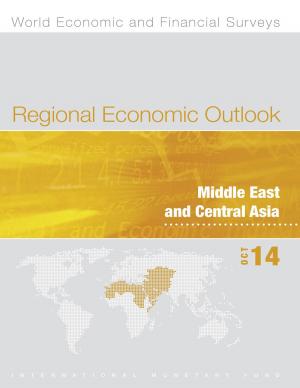The Arab States and the Palestine Conflict
Nonfiction, Social & Cultural Studies, Political Science, International| Author: | Barry Rubin | ISBN: | 9781301090280 |
| Publisher: | Barry Rubin | Publication: | February 7, 2013 |
| Imprint: | Smashwords Edition | Language: | English |
| Author: | Barry Rubin |
| ISBN: | 9781301090280 |
| Publisher: | Barry Rubin |
| Publication: | February 7, 2013 |
| Imprint: | Smashwords Edition |
| Language: | English |
Hundreds of books and thousands of articles have been devoted to the history and contemporary course of the Arab-Israeli conflict. The confrontation within Palestine, the participation of Great Britain, the United States, and the United Nations, and the impact of these events on Jews and Palestinian Arabs have all been endlessly chronicled. Surprisingly little attention, however, has been devoted to the question of how the Arab states entered the battle in the first place.
In addition to tracing the events involved in the growing intervention by Arab states in Palestine, this book attempts to analyze two specific issues. How did internal conditions in the various Arab countries affect their involvement in Palestine? How did the network of alliances and conflict among the Arab governments shape their Palestine policies?
How can one hope to understand the conflict without exploring this essential dimension? If Arab nations have spilled so much passion, spent many lives and so many billions of dollars over this issue—and remain willing to do so—the tale of how they arrived at this position must be a compelling and revealing one. This story should be expected to revea important principles of international relations and of the connections between domestic politics and foreign policy.
In this sense, the 1948 Arab-Israeli war and Israel’s independence represent not only a beginning but also an end. These developments marked the failure of diplomacy and indirect intervention by the Arab states. They seemed to mark as inevitable an evolution of affairs which might often have taken alternative paths.
The remnants of pre-1948 ideas and relationships continued to play an important role until 1956. By then, the collapse of the old order, the rise of a new type of Arab leader and of a new model of Arab politics gained the ascendancy. Yet the importance of the Palestine issue and the distinct roles and attitudes of the different Arab states had been largely set through their earlier experiences.
One other point should be especially stressed here. Analysts and scholars often explain some aspect of an Arab government’s foreign policy by presenting it as an attempt to distract public attention from domestic problems. In this light Arab rulers are seen as the masters and manipulators of their political culture. On the contrary, given the powerful and widely accepted premises of Islam and of Arabism, Arab leaders themselves are often seriously constrained. The failure to take certain actions, which may be dangerous and against their personal or national interests, will expose them to the campaigns of domestic and foreign rivals. The ruler may become the subject and even the victim of such necessities. This theme will constantly reappear in the study, and it is an important component in the inner logic of Arab politics.
When the research for this book began I confided my plans to an Arab historian. The idea was, I explained, to write about the efforts of the Arab states over Palestine, particularly in the pre-1948 period. “Oh,” he replied with a cynical smile, “they really didn’t do very much.” I hope this book will convince him otherwise.
Hundreds of books and thousands of articles have been devoted to the history and contemporary course of the Arab-Israeli conflict. The confrontation within Palestine, the participation of Great Britain, the United States, and the United Nations, and the impact of these events on Jews and Palestinian Arabs have all been endlessly chronicled. Surprisingly little attention, however, has been devoted to the question of how the Arab states entered the battle in the first place.
In addition to tracing the events involved in the growing intervention by Arab states in Palestine, this book attempts to analyze two specific issues. How did internal conditions in the various Arab countries affect their involvement in Palestine? How did the network of alliances and conflict among the Arab governments shape their Palestine policies?
How can one hope to understand the conflict without exploring this essential dimension? If Arab nations have spilled so much passion, spent many lives and so many billions of dollars over this issue—and remain willing to do so—the tale of how they arrived at this position must be a compelling and revealing one. This story should be expected to revea important principles of international relations and of the connections between domestic politics and foreign policy.
In this sense, the 1948 Arab-Israeli war and Israel’s independence represent not only a beginning but also an end. These developments marked the failure of diplomacy and indirect intervention by the Arab states. They seemed to mark as inevitable an evolution of affairs which might often have taken alternative paths.
The remnants of pre-1948 ideas and relationships continued to play an important role until 1956. By then, the collapse of the old order, the rise of a new type of Arab leader and of a new model of Arab politics gained the ascendancy. Yet the importance of the Palestine issue and the distinct roles and attitudes of the different Arab states had been largely set through their earlier experiences.
One other point should be especially stressed here. Analysts and scholars often explain some aspect of an Arab government’s foreign policy by presenting it as an attempt to distract public attention from domestic problems. In this light Arab rulers are seen as the masters and manipulators of their political culture. On the contrary, given the powerful and widely accepted premises of Islam and of Arabism, Arab leaders themselves are often seriously constrained. The failure to take certain actions, which may be dangerous and against their personal or national interests, will expose them to the campaigns of domestic and foreign rivals. The ruler may become the subject and even the victim of such necessities. This theme will constantly reappear in the study, and it is an important component in the inner logic of Arab politics.
When the research for this book began I confided my plans to an Arab historian. The idea was, I explained, to write about the efforts of the Arab states over Palestine, particularly in the pre-1948 period. “Oh,” he replied with a cynical smile, “they really didn’t do very much.” I hope this book will convince him otherwise.















